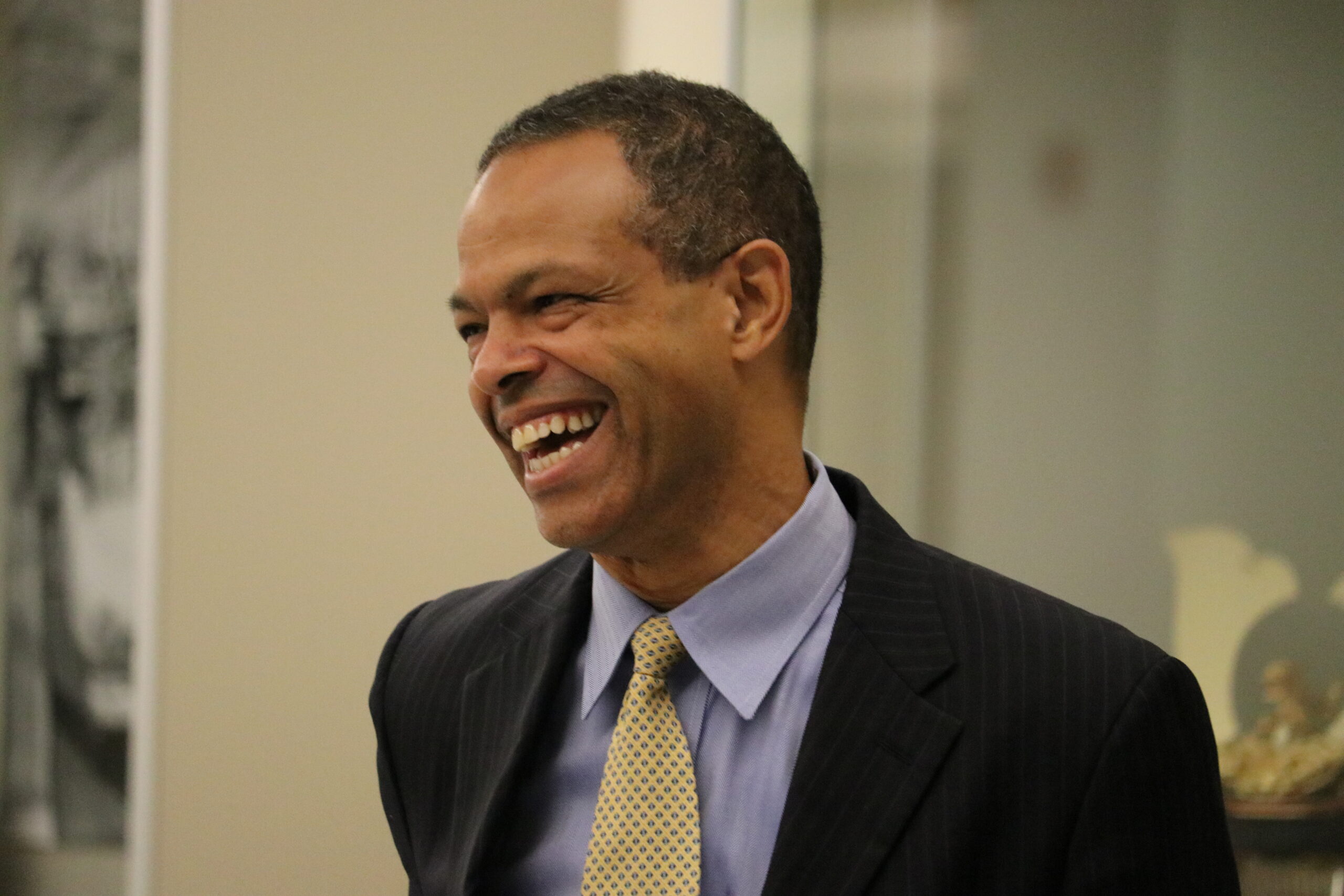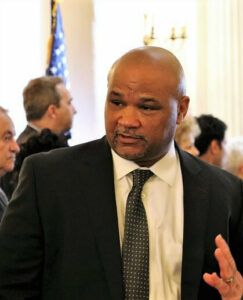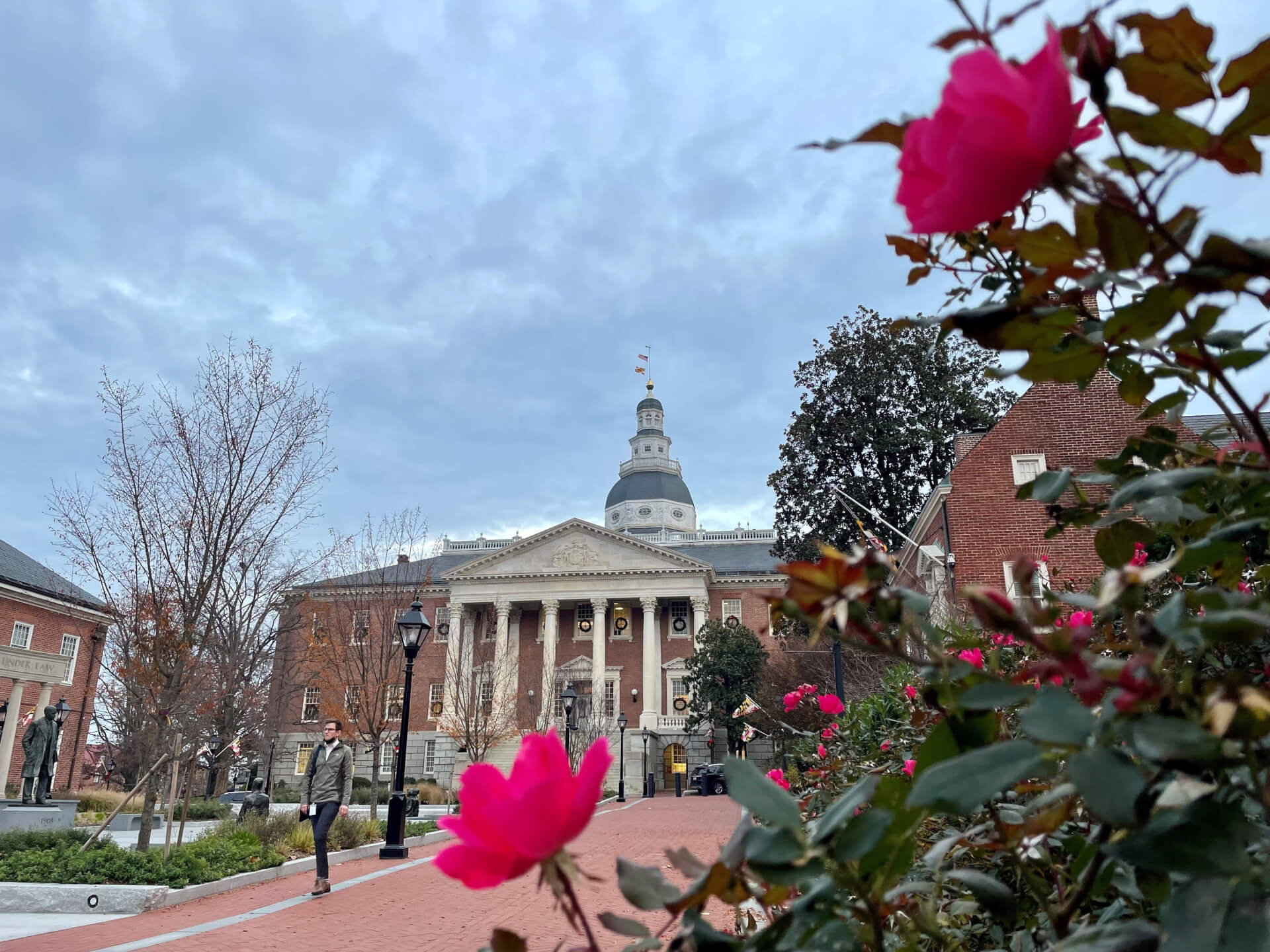Legislation Proposed to Protect Essential Workers as the Pandemic Worsens

Sophia Atu has been a nurse at Prince George’s Hospital Center for over 20 years. She knew that the job would be challenging when she started, but didn’t imagine fighting her way through an unprecedented pandemic like COVID-19.
“It’s like going to war,” she said at a news conference Tuesday morning. “When you say bye to your family you are gone. You either come back alive or you come back in a body bag.”
As a healthcare worker constantly exposing herself to the virus, Atu worries about having enough personal protective equipment to shield herself and her family from the virus while fighting exhaustion and grabbing extra shifts to make ends meet.
She said many of her coworkers have lost the battle against COVID-19. Some of their families have had to start GoFundMe pages to pay for their burials because they weren’t making enough money.
“We just need people to understand that we, too, are hurting because whatever we take home, we [also] take home to our family,” Atu explained.
Some state lawmakers have taken notice of struggles like Atu’s, and are preparing to introduce legislation to protect her and other essential workers who have put their lives at risk to keep the state running during the international public health crisis.

House Economic Matters Chairman Dereck E. Davis (D-Prince George’s). Photo by Danielle E. Gaines
Sponsored by Sen. Malcolm L. Augustine (D-Prince George’s) and House Economic Matters Committee Chairman Dereck E. Davis (D-Prince George’s), the Maryland Essential Workers Protection Act will require employers to provide workers with safe and hygienic workspaces, personal protective equipment, emergency pandemic action plans that include sanitation protocol and changes in shift hours, paid health and bereavement leave, free COVID-19 testing, an additional $3 an hour in hazard pay and the ability to refuse dangerous work without fear of retaliation.
“Folks, we’re in an emergency and that is what this bill is about,” Augustine said Tuesday. “Providing essential services should not put these families in danger.”
Ricarra Jones, political director of 1199 Service Employees International Union, said that one of the ”top hotspots to contract COVID-19” is in the workplace.
“We’re asking our workers to go out and risk their lives, and at a minimum, we just need to make sure that we’re protecting them and their families,” she said.
At present, the Maryland Occupational Safety and Health Administration does not require workplaces to establish pandemic safety plans. And companies that were providing their workers with hazard pay have largely stopped.
“We lost our hazard pay earlier this year, but the hazard is still with us. And now it’s even worse than before,” Jeffrey Reid, a meat clerk at a Giant Food in Silver Spring, said in a statement. “Companies like mine have not suffered during this pandemic, they’ve thrived. We’re risking our lives to make more money than ever for these grocery chains, and they won’t even give us hazard pay.”
Davis said that simply thanking essential workers for their service to the state and its residents does not suffice.
“We need to provide protections,” he asserted. “We need to give the benefits that are necessary.”




 Creative Commons Attribution
Creative Commons Attribution